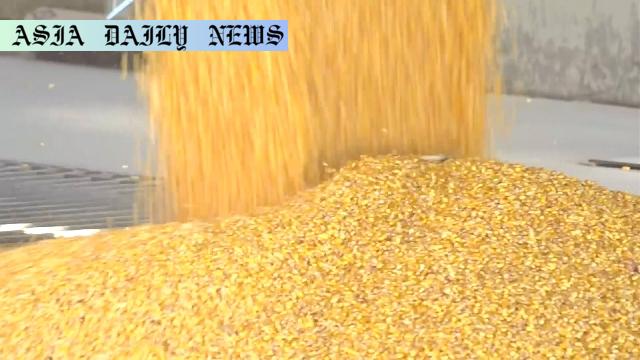Bioethanol: Japan accelerates plans to blend gasoline with bioethanol by 2028, meeting US trade demands and supporting sustainability.
Japan advances its bioethanol gasoline blending target to 2028 from 2030.
The accelerated timeline is in response to US trade demands for importing American-made bioethanol.
Bioethanol, derived from corn and sugarcane, reduces carbon emissions when used as a fuel alternative.

Japan’s Push Towards Bioethanol: Accelerating a Green Agenda
Japan has taken a decisive step in advancing its sustainable energy initiatives by accelerating the timeline for introducing bioethanol-blended gasoline. Originally planned for fiscal 2030, the target date has now been moved to 2028. This adjustment underscores Japan’s commitment to reducing carbon emissions and meeting environmental targets, while also responding to trade expectations from the United States.
Bioethanol is a renewable fuel derived from agricultural products, such as corn and sugarcane, with notable environmental advantages. When blended with gasoline, it significantly reduces harmful carbon dioxide (CO2) emissions from automobiles and aircraft. This move aligns Japan with global sustainability trends, demonstrating a proactive approach towards achieving a greener future. However, the decision is not purely ecological; it is intricately tied to the economic pressures and trade agreements involving the United States.
Trade Dynamics and U.S. Influence
The push to expedite bioethanol introduction comes amidst growing demand from the United States. A report from the Office of the United States Trade Representative (USTR) highlighted Washington’s interest in increasing Japan’s imports of American-made bioethanol, predominantly made from corn. As one of the world’s largest producers of bioethanol, the U.S. sees Japan’s potential as a lucrative market for its renewable energy exports. This decision not only strengthens trade relations between the two nations but also boosts the agricultural sector in the U.S., which benefits significantly from bioethanol production.
The importance of such trade collaboration cannot be understated, as it fosters mutual economic growth. However, it also raises concerns about Japan’s reliance on foreign-produced bioethanol and the potential impact on domestic agricultural industries. Balancing international trade demands with local economic and environmental priorities will be pivotal as Japan moves forward with this policy adjustment.
The Environmental and Economic Implications
This initiative represents a dual-edged opportunity for Japan. Environmentally, the adoption of bioethanol promises to curb greenhouse gas emissions and support global climate goals. Economically, the decision reflects Japan’s intent to solidify trade relations with one of its largest allies, the United States. However, with the bioethanol industry heavily reliant on agricultural supply chains, the shift calls for an efficient strategy that minimizes risks of dependency while maximizing domestic benefits.
Despite the immediate advantages, challenges remain in ensuring a balanced and sustainable bioethanol policy framework. Questions about production costs, supply security, and the balance between local industries and foreign imports highlight the need for an integrated approach. As Japan advances its bioethanol implementation timeline, it must also invest in the necessary infrastructure and support mechanisms to foster long-term success.
In conclusion, Japan’s move to expedite the introduction of bioethanol-blended gasoline reflects both its environmental goals and its strategic trade priorities. As the country navigates these intersecting dimensions, it serves as an example of how nations can approach sustainable energy transitions in a globally connected economy. The coming years will determine the success of this ambitious endeavor, setting a precedent for future collaborations in the renewable energy sector.



Commentary
The Strategic Significance of Japan’s Bioethanol Initiative
Japan’s decision to accelerate the introduction of bioethanol underscores its dual commitment to sustainability and international trade partnerships. This bold move illustrates how environmental policies can intersect with geopolitical and economic strategies. By moving the timeline up to 2028, Japan is effectively placing itself at the forefront of renewable energy adoption in the Asia-Pacific region, sending a strong signal of its dedication to global environmental objectives.
U.S.-Japan Relations: A Catalyst for Change
Another important layer to this story is the influence of U.S. trade policies. The United States, as a dominant bioethanol producer, has been actively seeking avenues to expand its market. Japan’s responsiveness to U.S. trade demands highlights the intricate dynamics of international alliances. While this move strengthens bilateral relations and provides economic opportunities for American agricultural sectors, it also underscores the dependence smaller markets often have on larger, more influential economies.
Challenges in Implementation: A Multi-Faceted Perspective
Despite the promising advantages, Japan faces a series of challenges in implementing bioethanol on a wider scale. Dependence on imported resources may raise questions about supply chain reliability, while the competition between foreign imports and domestic agriculture could lead to economic and political tensions. Furthermore, the infrastructural changes required to adopt bioethanol blending at scale demand significant investment, creating additional pressure on policymakers and industries alike.
Overall, Japan’s accelerated integration of bioethanol represents an ambitious yet nuanced step towards a sustainable energy future. It is a testament to how nations must often balance environmental ambitions with practical economic and geopolitical considerations. As this initiative unfolds, it will undoubtedly serve as a key case study in the realm of renewable energy policies and international trade relations.